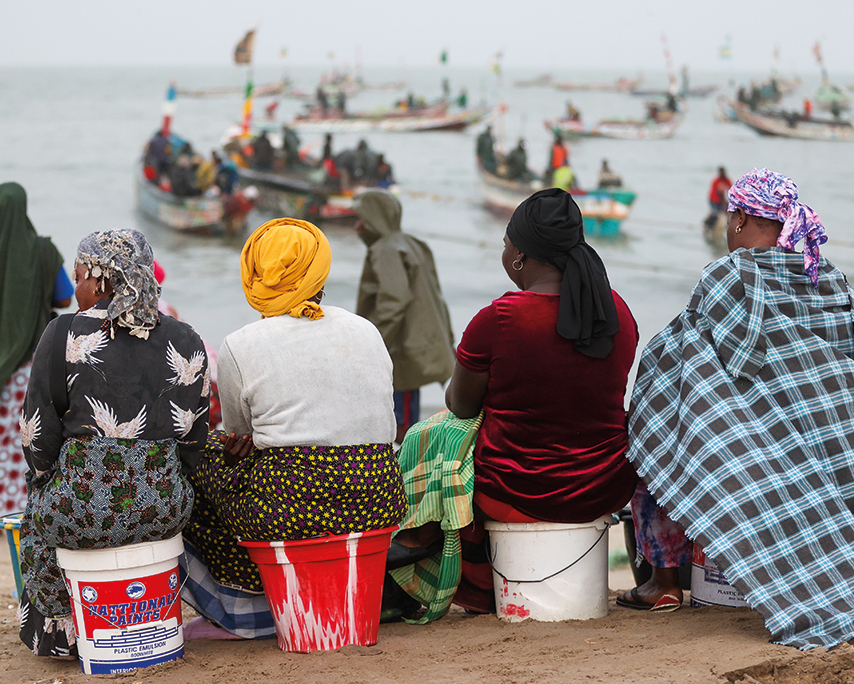International Day for the Fight against Illegal, Unreported and Unregulated Fishing
Why Africa must take the fight against IUU fishing seriously
Despite Africa’s abundant marine resources, the continent continues to lose billions of dollars annually to illegal, unreported, and unregulated (IUU) fishing. While policy conversations around climate change, food security, and economic growth gain momentum, the persistent crisis unfolding along Africa’s coastlines remains dangerously under-addressed. However, this is not due to a lack of research or evidence. In fact, the body of literature on fishing and IUU fishing in Africa is not only substantial but alarmingly consistent in its findings: IUU fishing is stripping African countries of their natural wealth, destabilising communities, and undermining the sustainability of a critical food system.
From West Africa’s bustling Atlantic waters to the Indian Ocean coasts of East Africa, academic studies, development reports, and investigative journalism paint a bleak picture. Foreign fishing fleets, some operating with licenses and many without, have long taken advantage of weak enforcement, under-resourced maritime governance, and opaque licensing regimes to plunder African waters. West Africa, in particular, has been described as one of the world’s most severely affected regions, with up to 40% of the fish caught estimated to be unreported or illegally caught.
These figures are not just data points. They translate into fewer jobs for local fishermen, higher fish prices in local markets, and the erosion of marine ecosystems that many communities depend on for their survival. The consequences ripple beyond fisheries. Studies have linked depleted fish stocks to increases in piracy, smuggling, and forced migration, especially among unemployed youth in coastal communities. In short, IUU fishing is both an environmental issue and a security one.
Research from institutions such as the FAO, the African Union, and regional bodies like the SADC consistently highlights these challenges. The literature is robust in its regional breakdowns, with West Africa leading the way in case studies, while Central and East Africa are seeing growing attention. A strong technological emphasis is also emerging, as satellite tracking, remote sensing, and machine learning are now being explored to enhance surveillance.
Yet, for all its depth, the literature reveals a troubling gap between knowledge and enforcement. Policy frameworks exist, such as the Port State Measures Agreement (PSMA) and regional fisheries management organisations, but their implementation remains spotty at best. Many coastal African states lack the naval capacity, institutional coordination, or political will to enforce these measures effectively. Corruption, poor data sharing, and underfunded marine agencies create further obstacles.
What does this mean for the average African or the professional in development, policy, or business? It means that every fish that disappears illegally from African waters is a stolen opportunity—one that affects food prices, undermines national economies, and weakens state legitimacy. It also means that tackling IUU fishing must become a priority for all stakeholders, not just the remit of maritime agencies or environmental NGOs.
There is hope. Innovative research is highlighting the importance of community-driven surveillance efforts, co-management of marine areas, and public-private partnerships that enhance transparency in the seafood value chain. However, these ideas require more than academic attention. They need champions in policy circles, investment from development partners, and accountability from national leaders.
For too long, Africa’s marine wealth has been seen as an open frontier for exploitation. If the existing literature teaches us anything, it is that IUU fishing is a solvable problem, provided we take it seriously. The continent cannot afford to continue draining resources from its richest ecosystems while ignoring the data that screams for attention. It is time we moved from research to action, from awareness to enforcement. Every day we delay, another ship sails away with Africa’s stolen future.



